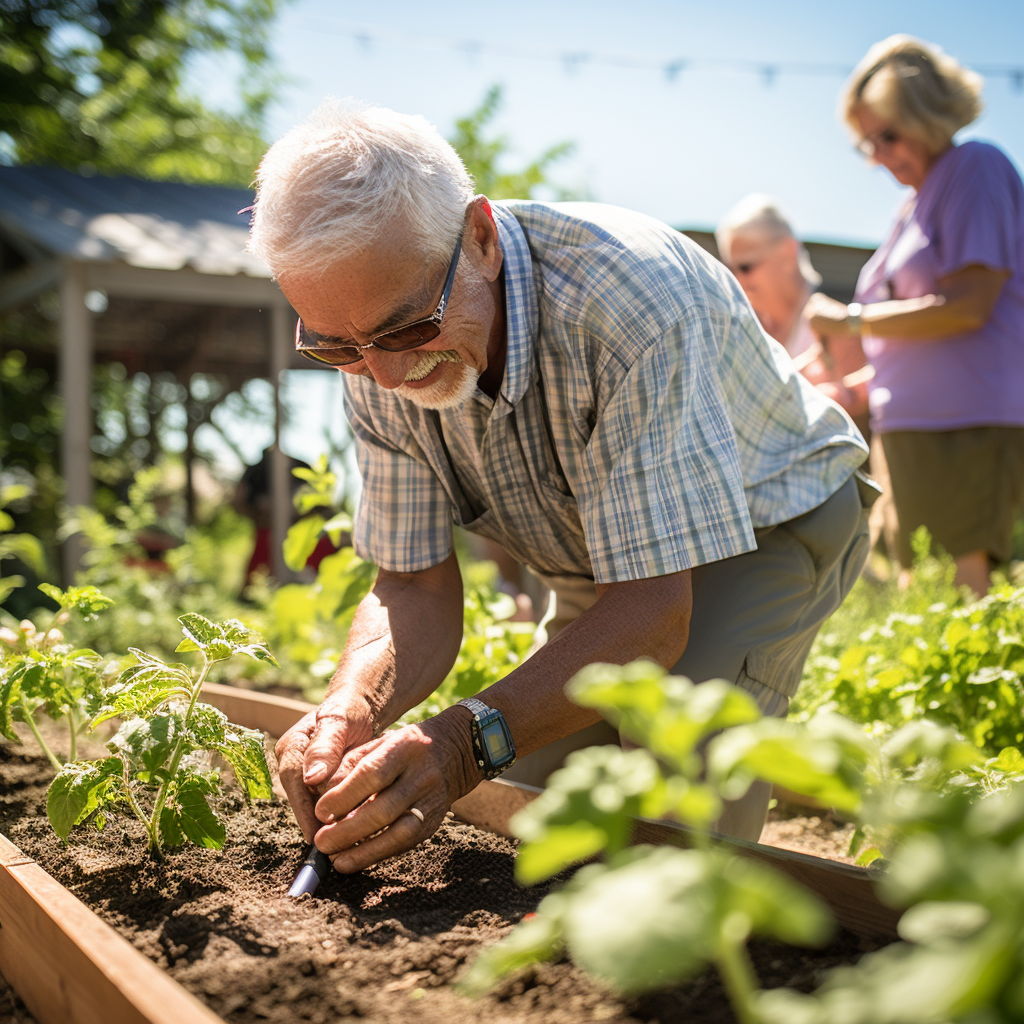In the rustic tapestry of our elder community, challenge and opportunity shape the landscape of health and wellness. Scarcity of resources, social withdrawal, and insufficient support infrastructures often erode the well-being of our senior population. Yet, a creative and enduring strategy is taking root that harnesses their affinity for nature and addresses health needs by gardening for wellness. This approach weaves together the therapeutic rhythms of nature with the essential pursuit of health, offering a verdant path to revitalizing both body and mind.
Outdoor Gardening for Wellness Bolsters Health
For years, gardening has been recognized not just as a hobby for greenthumbs but as an effective wellness activity. Especially for rural elder communities, it perfectly aligns with their familiar comfort landscape while leveraging nature itself to bolster their health.
Control Nutrition by Gardening for Wellness
Growing your food can be an empowering way to control nutrition. According to the American Heart Association, nutrition plays an integral part in overall health and wellness, with the potential to lower risks of chronic diseases like heart disease and some cancers. Fresh, home-grown fruits and vegetables, the essence of heart-healthy superfoods, can significantly enhance seniors’ dietary habits. This functionality of gardening for wellness and as a source of nutrition caters to the ‘Nutrition & Wellness’ aspect of the elder community’s wellness. Gardening for wellness also contributes to physical activity among seniors, a necessary component of maintaining mobility and physical health. The National Institute on Aging suggests that gardening can improve endurance, flexibility, and strength.
Active Gardening for Wellness and Belonging
The eco-friendly approach of home gardening not only contributes to their health but also to the betterment of our environment. This active contribution gives the elders an added sense of responsibility and belongingness which when tied with other community engagements can also create a positive impact on their mental health.
However, gardening isn’t merely a form of physical exertion or a tool for nutrition. It’s a salient conduit towards mental health betterment. A 2017 meta-analysis found that gardening can reduce symptoms of depression and anxiety. Basking in green spaces has been linked to reduced stress and better mood, reducing the levels of cortisol – the stress hormone. Additionally, nurturing a livable and productive life form can bring immense satisfaction and purpose.
Gardening Fosters a Sense of Community
Bridging the gap in rural senior support, gardening allows for communal involvement, fostering social interactions – reducing feelings of loneliness and isolation among seniors. Events like community plant swaps or harvest gatherings can significantly boost seniors’ ability to interact and be active, fostering a sense of community.
Addressing Potential Hurdles
Despite the multitude of benefits, it’s essential to consider the potential hurdles like physical constraints and lack of accessibility, which may prevent seniors from fully engrossing themselves in gardening activities. Adaptive gardening practices like raised bed gardening or container gardening can be implemented to address such issues. Additionally, we can supplement traditional gardening with tech innovations. For example, gardening apps, which can guide through planting times and watering schedules, wearable tech to monitor health during gardening makes the entire experience welcoming and secure for the elders.
In an age where health and well-being are thought to be prescribed by a pharmacy, gardening offers an organic, wholesome alternative. It positions itself as an activity catering to various residual benefits for seniors’ health – physical, nutritional, social, and mental in a way that is sustainable, engaging, and accessible all at once.
Gardening presents an untapped opportunity to revolutionize senior health care in rural communities. Let’s sow the seeds of well-being and grow towards healthier, happier elder communities.
